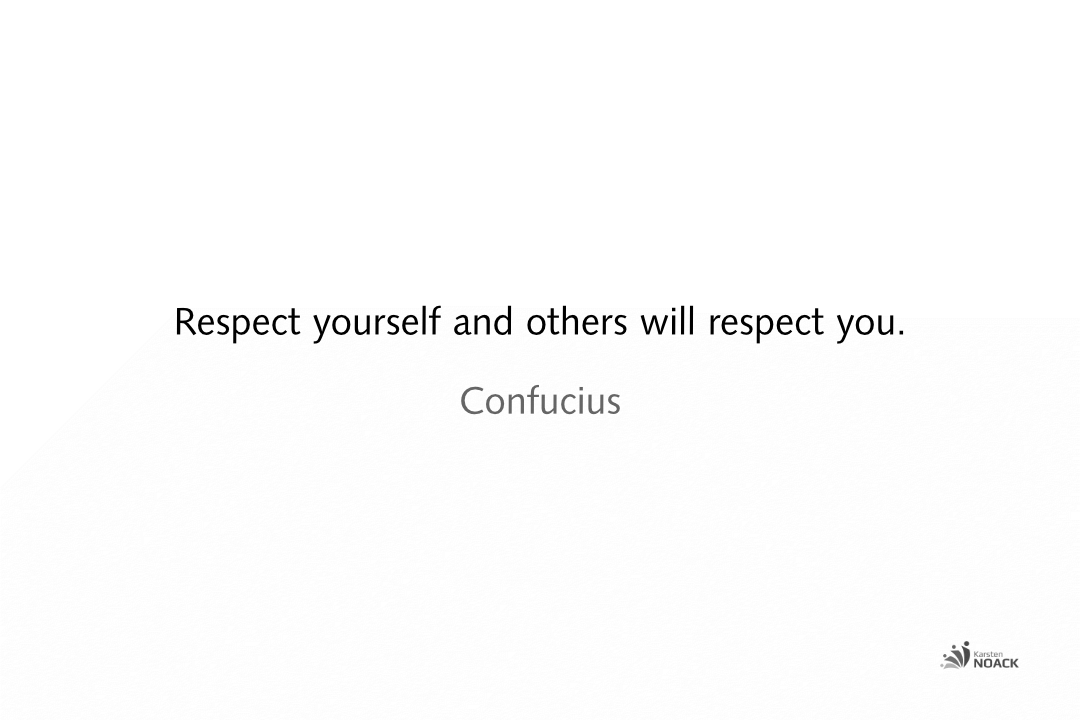These 20+ conversation tips let you talk without interruption!
Some people are interrupted more often than others while talking. Reduce the likelihood to be interrupted.
Reduce the likelihood of being interrupted
What kind of people don’t let you finish your talk? In a good conversation, everyone has his part. Everyone can talk and let the other talk. But why are some people interrupted so often, and what can be done about it? Here are some tips to reduce the likelihood of being interrupted while you speak.
Overview
Speaking without being interrupted
In a good conversation, each participant can talk until he finished his speech. Each participant is allowed to talk and lets the others talk. Every relevant contribution deserves to be heard. Interrupting other people’s speeches is not very polite. And yet it happens so often. Admittedly, in the heat of the moment, it is not always easy to hold back. Body chemistry interferes with a good education in childhood.
Some people interrupt others, and some people are interrupted more frequently. What kind of people don’t let you finish? The reasons for interrupting may be bad manners, feelings of superiority, social and communicative deficits. Many people have never learned to be good listeners. But why are some people interrupted so frequently? In this article, you will learn how to make excuses.
In this article, you will find recommendations so that you will not be interrupted while talking.
What to do?
Not everyone succeeds in finishing their sentences equally well. We live in a culture where interrupting is common and commonly tolerated. Being interrupted is frustrating for most people, but if you are a shy, soft-spoken, or introverted person, it can make it especially difficult to communicate. Because of this, speakers are developing different strategies to prevent it.
Many do not take a break from talking because they are afraid of not reaching the essential point. That does not make them more relaxed, but breathless. To counteract this, many keep their voice at the end of the sentence above and avoid pauses. In this way, no starting point and little space for an interruption should be provided. However, good intention also has disadvantages. Those who therefore constantly stay at the end of the movement with the voice at the top, make long movements, and avoid pauses do not appear sovereign but fearful. Statements then sound more like questions. All these damage the impression we make on other people.
Some people, despite attempts at interruption, can persevere, prove their assertiveness, and have better nerves. Even if this procedure sometimes works, it has its limits. It doesn’t appear very sympathetic and real conversations are made more difficult. You better address the behavior and clarify the rules for further communication.
20 tips on how to speak without being interrupted
Reduce the likelihood of being interrupted
You do not have to accept to be interrupted while you speak. Finally, professional communication should be possible. The following recommendations can help you to defend yourself confidently against the interruption of a conversation, or even to prevent it altogether.
1. Prevention is better than aftercare
Prevent interruptions in advance through your entire appearance and behavior. A sovereign appearance reduces the probability of attacks. Make it clear that you can not be diverted from the path. Do not make it so easy for opponents. If you are more likely to be distracted, the likelihood of further interruptions increases. So always keep the big picture in mind!
2. Have something relevant to say
Someone with a reputation for wasting time in meetings will be interrupted more often. Therefore, it is better to say nothing than say something that is not particularly relevant. In such a case, there is a high chance that you will be publicly interrupted. On the other hand, when having the reputation to deliver relevant contributions, you have full attention.
3. Make it easier for the listeners
Some people have something to contribute, but they cannot present it in such a way that it is immediately understood. Make it easier for the audience to enjoy listening to you and your message. Get your message across to the people. Focus on clear and convincing communication. This includes a clear speech structure, even for short speeches. Support your message verbally and non-verbally. The physical act of gesturing helps you form clearer thoughts and speak in tighter sentences with more declarative language.
4. Fighting for the status of the top dog
Interrupting is a way to demonstrate power in interpersonal situations. Cutting in while someone else is speaking can be a way of asserting dominance over someone. It is like fighting for the status of the top dog. The spectacle may be funny to watch for the audience but is usually not good for your reputation. Accordingly, it is better to distance yourself from such nonsense without having disadvantages. Show teeth and smile!
If you get into a power struggle, where the other person is using a power interrupt, then it may be time to exercise your power, for example by using one of the other techniques on this page.
5. Know your priorities
Knowing your goals and priorities makes it easier for you to keep focus and not get distracted. This signals that you can not be diverted from the path. Attempts to prevent you from talking become useless.
6. Stay focused
Interrupting someone works so well only because you are torn from your thoughts. It is not just the speech, but above all the concentration is interrupted. The person who interrupts then receives full attention and has achieved his goal. You can prevent this behavior – even for future situations – by not engaging in the distraction. Without proper attention, the incentive to interrupt others is lost.
7. Keep the right eye contact
Another good strategy to avoid being interrupted is constant eye contact with those you speak with. Some people are waiting for the right time to express their opinions and to interrupt someone. Through constant eye contact, however, you create a conversation situation that signals that there is still no opportunity for an interruption.
For chronic interrupters, you can use the power stare. Power staring means looking for longer than the normal glance. Look directly in the eyes of such a person while presenting high-status body language. This signals that you are not willing to give up control as yet.
Be careful and don’t send inviting signals with your eye contact.
8. Address the behavior
Frequent and aggressive interrupting, without showing respect, is destructive. However, if someone stops you or even interrupts you, stay as friendly as possible and confront them directly with their behavior. It is legitimate to say, “You have just interrupted me, please let me continue till I close my speech.” Make clear that you do not accept such behavior. Doing that also shows that you can assert yourself.
9. Voluntarily provide space for others
Voluntarily giving space to other people projects that you believe to respect, and it communicates sovereignty, and enhances personal status.
10. Body language
The effective use of body language plays a key role in communication. Body language signals what we think. It also reveals what we do not want to say. We signal how self-confident we are. Better send strong messages about you. Indicate that an interrupt will be met with a powerful response.
Use powerful body language like expanding our body space with larger gestures and power poses. Touching others is also a status signal.
11. Ignore the interruption
Granted, it’s not the finest way to deal with an interruption. But it can be effective with some penetrating interferes who are already known to inappropriately interfere in conversations. Just ignore the interjections of such people and continue the conversation with confidence. It helps if your other valued conversation partners also ignore the interruption.
12. Have a clarifying conversation
Consider that many chronic interrupters do not know that they are chronic interrupters or underestimate the impact. Your relationship with the interrupter affects the type of response. If it is possible and useful, have a fundamental conversation about future communication.
The best time for a clarifying conversation with the interrupter is sometime later, when the first anger has been sufficiently reduced, and you can concentrate on the essentials. Ask the interrupter to talk privately and talk about how you perceived the behavior. Mention that you felt the interruption to be disrespectful and expect different behavior from now on.
Tip: In role-playing games, this can be practiced very well beforehand.
13. Be careful with pauses
Be careful with pauses because they allow others to interrupt them. Many people interpret pauses as invitations to speak now. Such caution, however, has the disadvantage that you may not have the effect of dramatic pauses. Those who constantly try not to take breaks appear rushed and insecure. This reduces one’s status, and whoever practices something like this doesn’t seem as competent anymore.
14. Don’t send the wrong signals
Be careful with signals that can be considered as an invitation to interrupt you. Avoid the following misleading signals.
- An inviting, open body language.
- Raising eyebrows
- Submissive body language
- Speaking slower
- Speaking quieter
15. Stay balanced
Interruptions can be very outrageous, but rampant anger and outbursts of rage are rarely recommended reactions. Of course, you can get excited about an interruption, shout at the unfriendly person, and then continue the conversation, still snorting with rage. Such behavior, however, puts you on a par with the interrupter and does not leave the impression you want to leave on your valued conversational partners.
16. Interrupt the interrupter
In rare cases, it may help to interrupt chronic interrupters when they talk. This may provide a better starting point for clarifying conversations about future communication. However, this is a risk to your reputation. Observers may think your behavior is questionable and accuse you of a bad communication style.
17. Speed up
Speaking a little faster will make it harder to interrupt you. The downside is that it will be harder for listeners to follow you. Moreover, rushed talking will sound less confident.
18. Speak louder
Increase the volume at which you talk when someone tries to interrupt you. As good as this works, as unpleasant it can be for the audience. It tends to sound more aggressive. In addition, constantly more intensive use of voice reduces the variety of vocal possibilities. A varied voice is much more pleasant and effective when it comes to convincing.
19. Keep your voice down
In the eagerness of an emotional conversation, be careful not to develop a higher voice. Stress tends to increase voice pitch, which appears less competent and powerful. Be careful that your voice does not remain on top at the end of the sentence. If your voice doesn’t go down at the end of the sentence, then what you say sounds more like a question than a statement. This increases, among other things, the likelihood of interruptions.
20. Practice, practice, practice
Improving communication skills requires constant practice. You can also benefit from experts who coach and train you.
Why do people interrupt others?
It is important to understand the motivations behind the bad habit of interrupting other people. Here are some of the most common reasons for interrupting:
- Enthusiasm
Someone is excited or passionately eager for the current topic, which can make waiting for the appropriate opportunity difficult. - Lack of self-awareness
Some people just do not realize that they interrupt others or that it is bad behavior. They may be so busy with their insecurity that they don’t realize it. - Fear of forgetting
Instead of actively listening, it seems to be important to deliver an idea right now before it is forgotten. - Ego
The strong desire to prove expertise to peers or superiors on a topic being discussed. - Need for belonging
Someone wants to be part of the conversation, but there are no breaks in the conversation. - Cooperative interruption
The reason may be a good intention. For example, it is an attempt to relate to the person who is speaking; by making positive affirmations or sharing perspectives. - Competition
It can be an attempt to change the subject to support one’s agenda or to gain the attention of the audience. - Gender (Manterrupting)
Men interrupt women much more often than other men. That is less today than many years ago, but it is still a reality. - Environment / Culture
In some contexts, the phenomenon of interruption is a common experience that is not questioned. Because many others also interrupt, it seems normal and in order.
Be ready for important conversations and negotiations
Communication can be easy. But often it is not. Sometimes we say one thing and then realize later, based on the other person's reaction, that they were talking to someone else. With the best will in the world, I didn't say that. - Or did I?
More or less consciously, conversations are about convincing other people of something - be it a special offer, your personality, a perspective, or a necessity. If this doesn't happen quickly enough, and above all, if it isn't precise and vivid, the other person quickly loses interest, and we lose the hoped-for opportunity. - The conversation has failed.
You can let me help you prepare for your meetings and negotiations (to be on the safe side: no legal advice!). Find out how you and your message are perceived (arguments, body language, language, voice, and much more). I will train you in effective tools and communication strategies. Develop your psychological skills, learn to stay calm, act confidently, remain authentic, and ultimately convince.
Just ask me personally
Please post any questions that may be of interest to other readers in the comments. Looking for professional help?
If you are interested in coaching, training or consulting, if you have organizational questions, or if you want to make an appointment, you can reach me best via this contact form (you can choose whether you want to enter your personal data) or via e-mail (mail@karstennoack.com). The privacy policy can be found here.
Transparency is important. That is why you will find answers to frequently asked questions already here, for example about me (profile), the services, the fees and getting to know me. If you like what you see, I look forward to working with you.
Remarks:
In the address bar of your browser, the URL should begin with "https://www.karstennoack.com/...". This indicates a secure connection (SSL). Whether you enter your real name is up to you.
Related articles
- Prepare your conversations and negotiations
- What may cost the preparation of a conversation or negotiation, which effort is justified?
- 17 signs that someone is a manipulator
- Professional impact analysis: How do you and your messages affect the audience?
- Stop it, I hate that: Recognize the 11 most common manipulation techniques
Present the benefits in the beginning of your pitch
There are many strategies to consider in opening your pitch. Think about it twice, because those first minutes can make or break you.
You should know Godwin’s Law in order not to fall into the trap
What is Godwin’s Law? And how does it relate to everyday communication, speeches, and presentations?
What effort and cost for the preparation of a conversation or negotiation are justified?
If you expect something from a conversation, it pays off to prepare accordingly. With a good conversation, a lot can be achieved and investments are worthwhile. So far so good. Which effort exactly is worthwhile?
Professional impact analysis: How are you perceived by other people?
How do you actually affect people in conversations, speeches and presentations, in interviews? Professional feedback helps. What insights does an impact analysis offer you?
17 tips for facial expressions in speeches and presentations
This article deals with what it is worth paying attention to as a speaker concerning facial expressions.
Public speaking: Keeping it simple doesn’t mean you’re stupid
One should choose the simplest explanation of a phenomenon, the one that requires the fewest leaps of logic. The more complex something is, the easier we should explain it.
17 signs that someone is a manipulator
Not every attempt to manipulate us is obvious. Especially the professional manipulators learn how to hide their intentions. Unfortunately, there are a lot of those manipulators in business and private life. Learn how to recognize manipulators.
Don’t ignore conflicts!
When problem-solving everyday issues become a tug-of-war over who’s right and who’s wrong, then settling even the smallest of discussions becomes a battle. Don’t ignore conflicts. Deal with them!
Five fingers for a structured speech. Five-finger speech structure.
The five-finger speech structure step by step. Systematically build up statements, whether for speeches, presentations, or discussions.
Those who want, misunderstand us
Even if we provide a message with the appropriately deserved chance, it is not always communicated fairly. Then the best techniques and immense preparation help you only to a limited extent. Some hair can be found in every soup (German figure of speech), or conjured into it. What to do?
Being right at all costs. The price we pay for needing to be right.
Persuading without arguments, assertiveness, winning without consideration, knockout by nasty tricks, black magic, manipulating. It is a coveted feeling to be right.
Narcissists and feedback
People make mistakes and can learn from them. With narcissists this is unlikely. Even to harmless and cautious feedback, narcissists respond as if it were harsh inappropriate criticism.

This article is a short excerpt from the more comprehensive course materials my clients receive in a group or individual training or coaching.
Published: June 15, 2015
Author: Karsten Noack
Revision: August 20th, 2023
Translation: ./.
German version: https://www.karstennoack.de/gespraeche-unterbrochen-werden-tipps-berlin/
K:
H:
T: RR
#232












0 Comments